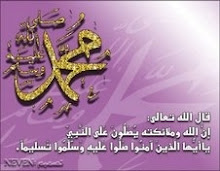Edward Gibbon Edward Gibbon and Simon Oakley say: “It is not the propagation but the permanency of his religion that deserves our wonder, the same pure and perfect impression which he engraved at Mecca and Medina is preserved, after the revolutions of twelve centuries by the Indian, the African and the Turkish proselytes of the Koran... The Mahometans have uniformly withstood the temptation of reducing the object of their faith an devotion to a level with the senses and imagination of man. 'I believe in One God and Mahomet the Apostle of God' is the simple and invariable profession of Islam. The intellectual image of the Deity has never been degraded by any visible idol; the honours of the prophet have never transgressed the measure of human virtue, and his living precepts have restrained the gratitude of his disciples within the bounds of reason and religion." Edward Gibbon and Simon Ocklay, History of the Saracen Empire, London 1870, p. 54.)
Bosworth Smith says: "He was Caesar and Pope in one; but he was Pope without Pope's pretensions, Caesar without the legions of Caesar: without a standing army, without a bodyguard, without a palace, without a fixed revenue; if ever any man had the right to say that he ruled by the right divine, it was Mohammed, for he had all the power without its instruments and without its supports." (Bosworth Smith, Muhammad and Muhammedanism, London, 1874, p. 92) Annie Besant says: "It is impossible for anyone who studies the life and character of the great Prophet of Arabia, who knows how he taught and how he lived, to feel anything but reverence for that mighty Prophet, one of the great messengers of the Supreme. And although in what I put to you I shall say many things which may be familiar to many, yet I myself feel whenever I re-read them, a new way of admiration, a new sense of reverence for that mighty Arabian teacher." (Annie Besant, The Life and Teachings of Muhammad, Madras, 1932, p. 4)

















ليست هناك تعليقات:
إرسال تعليق